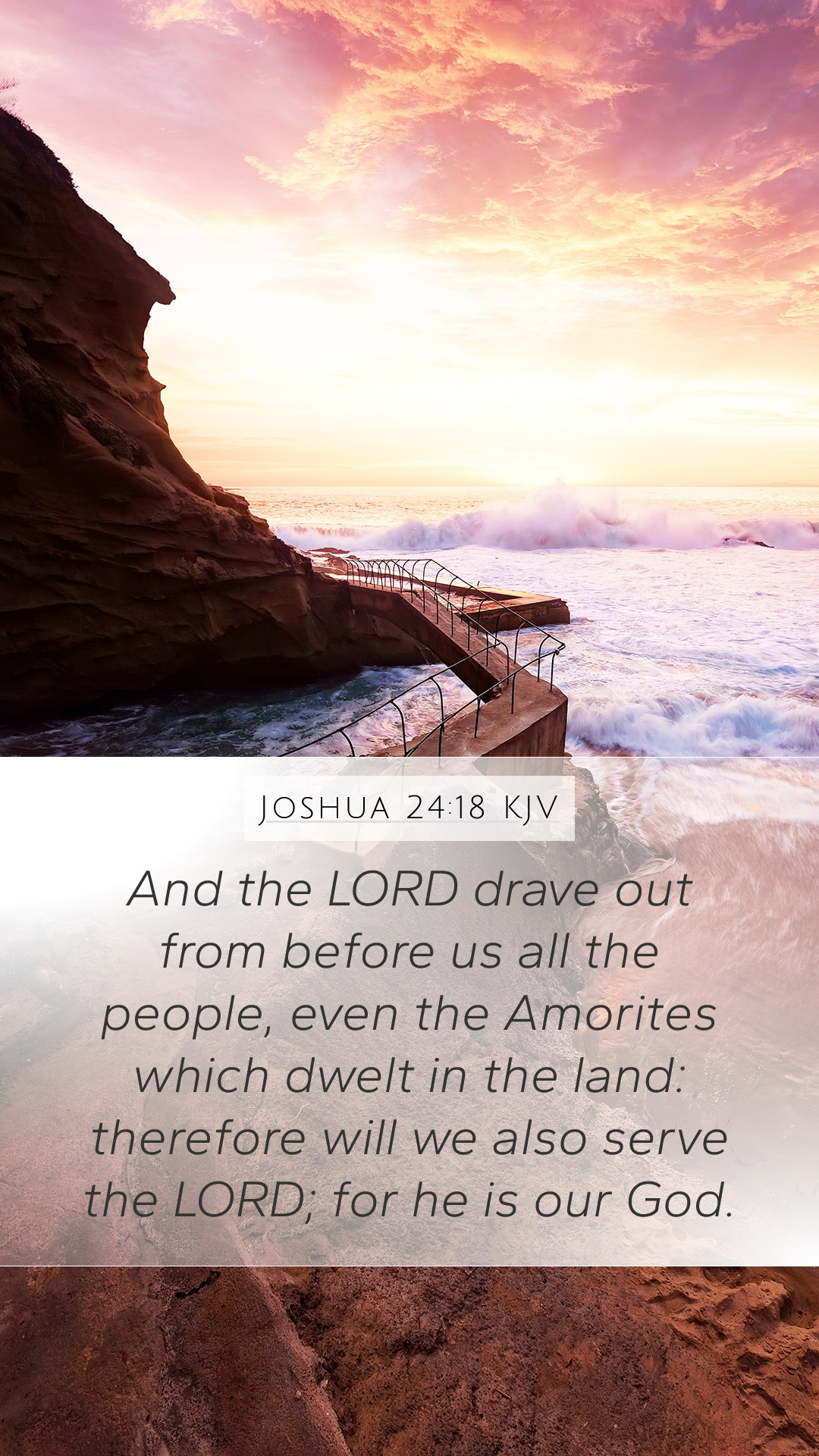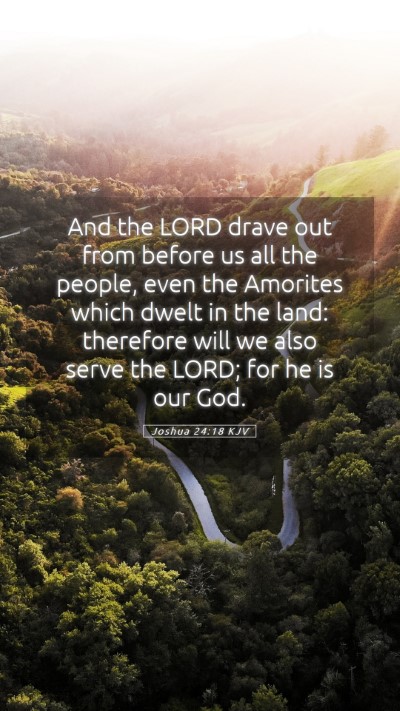Bible Verse Meaning: Joshua 24:18
Verse: "And the people answered and said, God forbid that we should forsake the Lord, to serve other gods;" - Joshua 24:18
Context and Overview
This verse occurs at a pivotal moment in the book of Joshua, where Joshua calls the Israelites to a decision regarding whom they will serve. It reflects a foundational commitment the Israelites make to their covenant with God as they prepare to enter the Promised Land fully. The responses of the people reinforce their loyalty and dedication to the Lord.
Bible Verse Interpretations
Interpretations provided in public domain commentaries present a rich tapestry of insights into this verse:
- Matthew Henry: Henry emphasizes the strength of the people's declaration. Their answer reveals both a recognition of God’s sovereignty and an acknowledgment of the dangers of idolatry. The declaration "God forbid" indicates an earnest commitment to remain faithful to God, counteracting any inclination to abandon their Lord.
- Albert Barnes: Barnes elaborates on the seriousness of the commitment. He suggests that the context of their promise is set against the backdrop of Joshua's challenge. Their response confirms their collective determination to serve Yahweh alone, denouncing any temptation to turn to other gods, thus highlighting the importance of unity in their faith journey.
- Adam Clarke: Clarke focuses on the historical significance of the moment, arguing that the people's vow represented a crucial point in Israelite history. This moment served as a reminder of God’s past mercies and the immediate dangers of spiritual waywardness. Clarke implies that their answer is not just a momentary statement but a commitment to a lifelong covenant.
Understanding Scripture
Key Themes
This verse captures several themes essential to biblical understanding:
- Covenant Commitment: The Israelites recognize the importance of maintaining their covenant with God above all else. This establishes a pattern for future generations on the importance of fidelity to God.
- Rejection of Idolatry: The phrase "God forbid" is a profound rejection of idolatry, emphasizing the need for steadfast worship of Yahweh, devoid of distractions by surrounding pagan cultures.
- Collective Responsibility: The people's consensus reflects collective responsibility in their faith, an essential insight for contemporary communities of faith.
Application to Daily Life
In applying Joshua 24:18 to modern life, believers are reminded of the importance of making intentional choices regarding their faith:
- Personal Commitment: Each individual is called to examine their faith and affirm their commitment to God against the idols of today, which may include materialism, social pressures, and lifestyle choices that conflict with biblical teachings.
- Community Involvement: Engaging in community Bible study groups can provide support in fostering commitment to God and help maintain focus on biblical teachings amidst a challenging societal landscape.
- Awareness of Idolatry: Recognizing what constitutes modern idolatry in one’s life can lead to a more profound commitment to worship and service to God.
Bible Cross References
This verse relates closely to several other biblical passages that reinforce its themes:
- 1 Kings 18:21: Elijah's challenge to choose whom to serve, reinforcing the need for clear commitment.
- Joshua 24:15: The previous verse where Joshua declares, "But as for me and my house, we will serve the Lord." A poignant statement of personal and household commitment.
- Exodus 20:3: The first commandment, "Thou shalt have no other gods before me," emphasizing the biblical mandate for exclusive devotion to God.
Conclusion
Joshua 24:18 serves not only as a historical account but as an enduring guide for personal and communal faith commitments. Through individual and shared affirmations of loyalty to God, believers can navigate the challenges of contemporary life with a firm foundation in Scripture.


